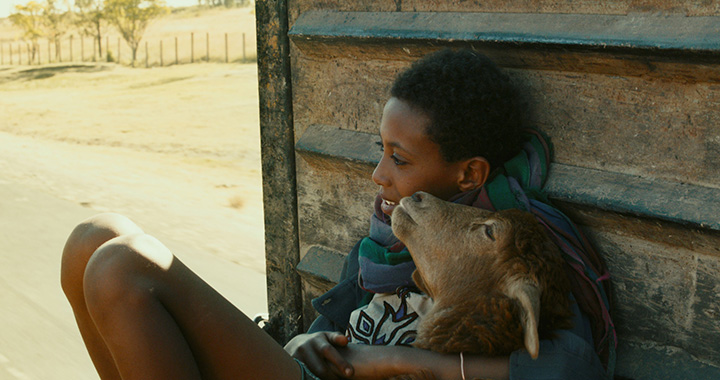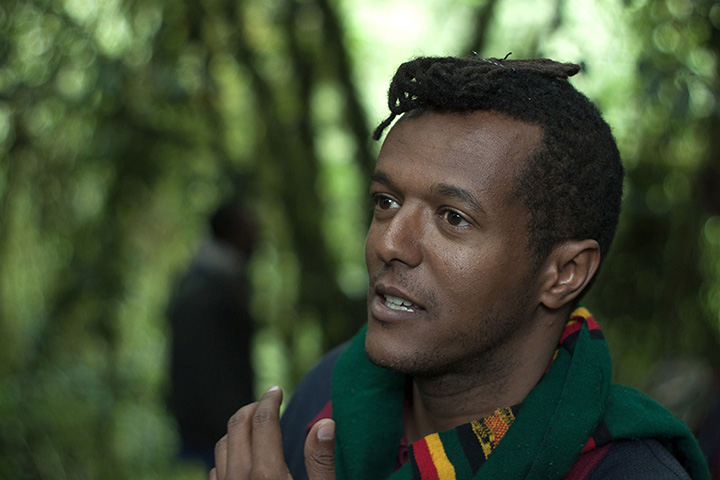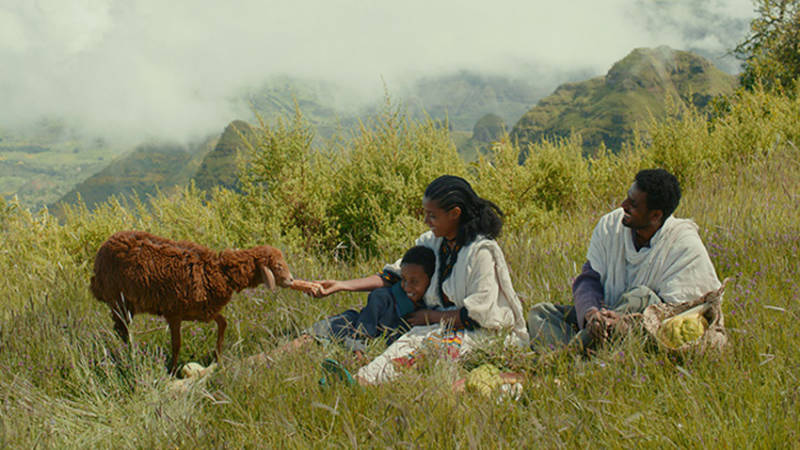The first scene in Berkeley-based filmmaker Yared Zeleke’s Lamb is a close-up of a hand caressing a woolly brown belly. The hand belongs to Ephraim; the wool to Chuni (meaning “dear”), his lamb and constant companion. Chuni is more than a pet. Since his mother’s death, Ephraim concentrates all of his love and affection on the lamb. Zeleke follows their story together as they journey across the lush, verdant mountains of Ethiopia, Zeleke’s homeland.
In person, Zeleke explains that, although the film is semi-autobiographical, he grew up in a “very typical slum neighborhood of Addis Ababa.” In fact, his production company is called Slum Kid Films, but he’s proud of his roots. “I grew up during the time of war with Somalia and Eritrea, during the time of the communist dictatorship, and the great famine of the 1980s. But I had a really happy childhood, and a very colorful childhood.”

Ephraim’s story, in contrast, takes place in rural farming villages. When the camera encompasses wide views of peaks and valleys, Ethiopia looks like an undisturbed Eden that’s being captured on film for the first time. Zeleke had two reasons for setting the film in the countryside. “There is the political aspect,” he says, “which is that Ethiopia is not a desert, that it’s mostly green. It’s about reclaiming the image as an Ethiopian, as an African, and [telling] through the story of someone from there. Because it’s been depicted to the world by outsiders for too long.”
The second reason is more personal. “The landscape is a major character because so much of Ethiopia’s history, culture, vegetation, way of life, the way we look — everything’s shaped by these mountains,” Zeleke says. “Seventy percent of Africa’s mountains are in Ethiopia. These mountains have made us who we are.” The presence of this landscape adds a mythical quality to a simple story: what will become of Ephraim and Chuni as they settle into the household of distant relatives?
Zeleke builds narrative tension in the film by focusing on two equally vulnerable characters, but avoids depicting a culture of extremes. Lamb is neither sentimental nor brutal, but traverses a range of emotions. “I did want to avoid cliché,” Zeleke says, “but life in most parts of the world, whether it’s rural Ethiopia or urban America, no matter where you go, it’s pretty much similar. There’s always the extreme end of drama and tragedy, and the other extreme end of perpetual happiness; but most of us live somewhere in between.”

Lamb acts as a corrective for Western audiences used to seeing films set in Africa depicting cruel despots and their victims. “I was just so tired of these films coming out of the African continent,” Zeleke says. “I wanted to show a more realistic portrait, what I know and how I grew up, because I didn’t grow up privileged.”


